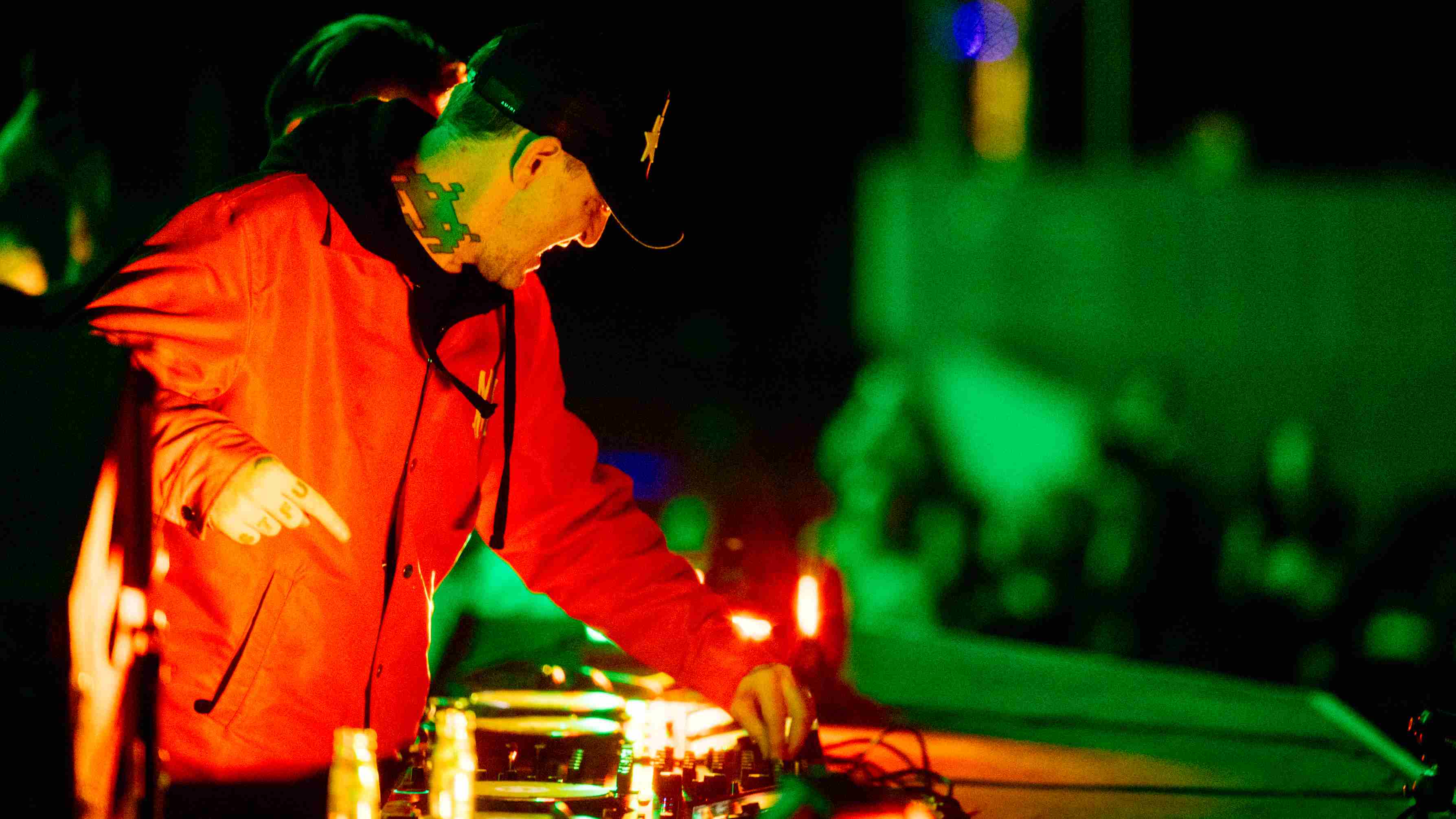Sebastien Tellier interview
The French singer/songwriter talks making music, touring and Eurovision
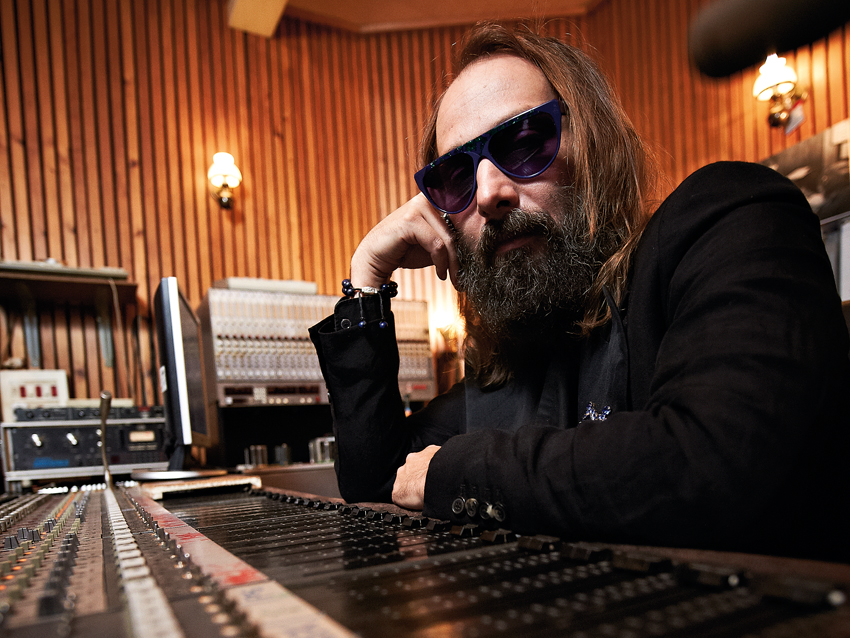
Sébastien Tellier's rise to popularity may have been a slow and steady one, but it certainly wasn't short of eccentricities.
Following his debut album L'incroyable Vérité (2001), which he instructed people to only listen to in candlelight, Tellier recorded a successful sophomore and the soundtrack to a movie about narcolepsy, Narco. With his sexed-up vocal, and sensuous, suggestive lyrics - often sung in a combination of languages - Tellier hit a peak with Sexuality and, more recently, My God Is Blue - notorious for its risqué video release for the single Cochon Ville.
"My parents listened to a lot of acoustic music, but Electronic music gave me the chance to find something new and to invent"
Musically, who inspired you in your youth?
Sébastien Tellier: "Do you know Julio Iglesias? And of course, all the Italian music. When I was young, mainstream music was very popular in France and so I think I have Italian or Latin melody in my blood now. I was not especially interested in Disco and only discovered Italo Disco when I was in my twenties - I preferred artists like Umberto Tozzi, Lucio Battisti and Angelo Branduardi."
Was it your dream even then to become a successful recording artist?
"My father gave me the need to be popular. Sometimes in a family the parents want the kid tobe a doctor or something, but my parents wanted me to become a musician. So, for me it was very normal. There was not a singer who helped to define me - my parents gave me the belief that I could become a musician."
You were 27 years old when you made your debut album. Why did it take so long?
"I think it's because I'm very slow - my mind is slow. I am always ten years late compared to my friends. I was in a teenage dream a long, longtime - between the ages of 10 and 25. At 17, I left my family home to live alone and started to think about what I wanted to become, what kind of artist and what I had to do to become mysterious. To create this personality took me a long time on my sofa in front of the TV. It also took a long time to become a musician, to compose or find a very good melody, and at the beginning I had to play every kind of instrument, like bass, guitar or keyboards, to become a kind of specialist."
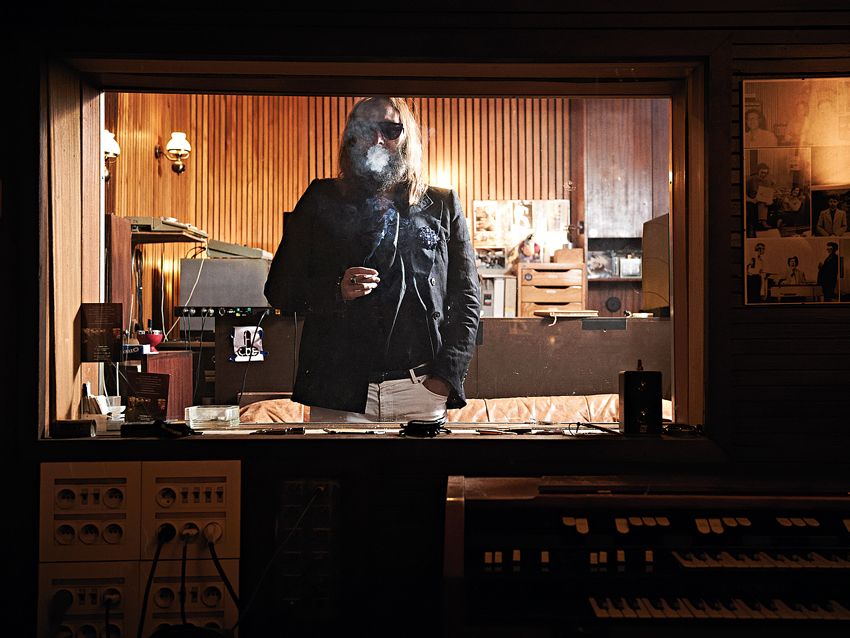
So you carefully planned it?
"Yes, because at 20 I wrote the book of my artistic life. In my little book I wrote my dream about how I wanted to do an album about sex, faith and politics. It's weird that I wrote it when I was 20 and each time I went against my 'book of destiny' it was a nightmare. For example, just before My God Is Blue, I tried to make an album about earth, but earth was not a subject in my book of destiny and when I played the piano thinking about earth, nothing happened. So I always go back to this destiny book, if you understand me."
Your very first tour was with Air, what sort of experience was that?
"Before that I just did gigs at school. Everything was very quick at this time because I saw Air's record company, Record Makers, and then one week later they proposed to me a deal for a few albums. Then, a few weeks later, I was on the road with Air. My first real gig as a professional was in Dallas, Texas, in front of 3,000 people - and on the first song my guitar amplifier exploded. At this time I was not so young, and this tour was huge because Air was on the top at the time, and that's how I discovered the music world. No more minibus, I could go in luxurious hotels. The life around a big tour like that is amazing, and afterwards I tried to make my own tour but it was a nightmare."
Get the MusicRadar Newsletter
Want all the hottest music and gear news, reviews, deals, features and more, direct to your inbox? Sign up here.
"In my little book I wrote about how I wanted to do an album about sex, faith and politics. I always go back to this destiny book"
Why did you accept the invitation to perform at the Eurovision Song Contest?
"I did it just for fun. When the people asked me if I would like to be the guy for the Eurovision Song Contest I said to myself, 'That's verycool'. It was so funny to phone all my friends to tell them, and everyone was saying, 'No way, stop that'. In fact, it was not just shit, it was a greatevening - better than in a club; I was drunk with my golf car. It's a huge musical TV show, backstage there was real craziness and it gave me a new, younger audience in Scandinavia. My finishing number was between 17 and 20. It was a very bad contest - if we talk about the quality of music it is very, very bad, but for me it was a pleasure to do, like a big joke - but I tried to do well."
Much has been said about the sexuality of your music. Are you trying to walk a similar path to Prince?
"Prince is a fine name; he's a king of course. Me, I want to talk about every kind of subject in a sexual way - but to compare myself to Prince, I am just a little seed. I am nothing compared to Prince; he can play every kind of music and do everything on stage - he is a master. I don't like his new side, Jazz Fusion - I prefer his old stuff."
Did Sexuality bring you to the public?
"Yes, although the kind of success I had is not Madonna or Justin Timberlake. A little success, but a good success. It gave me a good message; that the world is not against you, and I can be loved by the young people all around the world. It was a real pleasure and gave me a lot of confidence. It changed my point of view because now I have a sweet view of the world, it's like, 'Arggh I'm not just a crazy person in a shitty apartment, I'm almost normal'. Of course I'm crazy but I have a beautiful apartment and it's clean because I have a maid - before there was just garbage everywhere. My success changed all of those things."
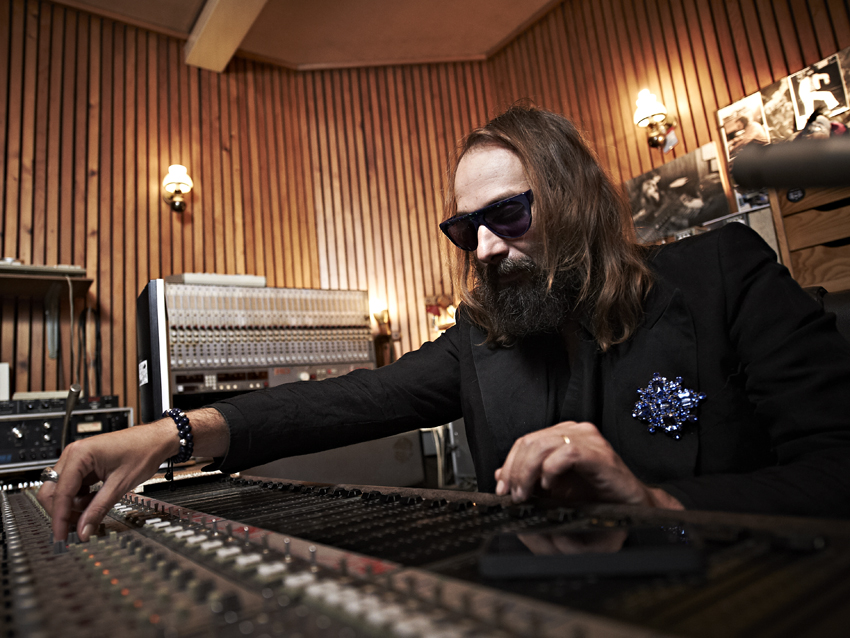
How does your new album, My God Is Blue, differ from Sexuality?
"For me, it's an album about faith - a kind of blue vision with a big aspect for sexuality and for sex in general. I tried to explain that in my video clip for the song Cochon Ville - it's a kind of big orgy and describes the message of freedom; a way to say to everybody that, in my world, every kind of sexuality is welcome. It's basic, but a part of my message."
The production is more sophisticated, is this something you focused on?
"Yes, because before I was always obsessed by the past. For the first and second albums I tried to recreate my love of youth but, since Sexuality, I've wanted to create something new and fresh. I like this vision of music being like a jungle and I go alone to try and find something special - like a new part of the world. Music is the same as discovery. I see myself as a discoverer and now I feel better and more in my time."
Your music moved from an acoustic to a more electronic sound - what was it about that electronic sound that appealed to you?
"It's because electronic music is sexier, more classy. At one step of my reflection I said to myself, 'I don't know why, but I don't care about acoustic guitar - it's always the same'. People like The Beatles or Dylan did well so there is no point trying to be better. The generation of my parents listened to a lot of acoustic music, but Electronic music gave me the chance to find something new and to invent, so I feel very comfortable in this way."
How did you begin discovering Electronic music?
"At the beginning when I discovered Electronic music it was through the band Air, who really helped me to understand computers. They came into the studio with me to explain how the machines work, and to do a good song you have to do it in a certain way - they were like my big brothers. After that I was in love with and passionate about synthesizers, but one day I sold everything and just used sounds from the internet."
Do you always write at home?
"Yes, because I need to feel very comfortable to write the music. When I go in the real studio I wear my best suit and try to be very cool, but at home I don't care - you know I am almost naked in front of my computer. It's wonderful because my apartment has a secret passage from the living room to my studio. You have to push a spot in the bookcase and when you touch it a door opens to a secret stairway, and at the end of the stairway there is a little studio with a view of Paris. My studio at home is for writing, not for recording - it's just really a place to help me to create."
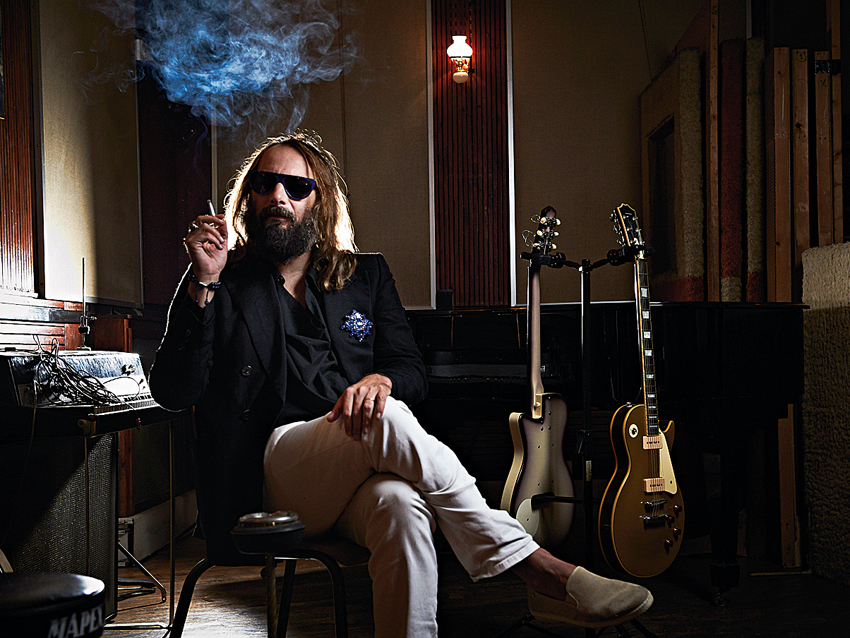
Do you write using the computer?
"I write on the computer - it's simple because with the Mac everything is like a game. It's not like you work. I use Pro Tools and spend about one month not touching anythingbut the little mouse of the computer. It's like painting little colours in little squares that creates music. Sometimes I write a lot of music on guitar and then, through MIDI, I ask the computer to play back the partition to discover what I composed. Of course there are mistakes, but these mistakes can be so cool because I believe the craziness of the person can go beyond to create something beautiful."
"I have a few ideas for the future, but very opposite to what I am doing now - but you know I will follow my book of destiny"
Your songs are usually quite slow-paced, is this for romantic effect?
"I'm not a sweet person, but the opposite of nervous - a quiet person, I am afraid of nervous people. For my message, it's better to play in a slow way because I think it's better to live your life in a slow way - like in Africa. If I compare my music to a movie it is more like a cartoon for adults. I try to give pleasure to children, to parents - to everyone."
Do you start with the lyrical content or would that come last?
"After the composing, because for me words are the flavour of the melody, even though I don'twant the lyrics to be a slave to the melody. So, sometimes I choose to sing in French, English or Italian. I choose the language that matches the music the best and some part of the melodies are better sung in English or French. It is a pleasure to change the language in the middle of the sentence, like a little sweet surprise."
What qualities do you look for in a producer?
"It took a lot of time to choose a producer for My God Is Blue because I have to transpose the music of the producer on to my music. For this album, I listened to maybe 100 records, trying to imagine the record mixed with my music, and sometimes I played the record of the producer I wanted to work with."
"In the end I chose Mr Flash [Gilles Bousquet], because he was the producer that could still create after a long day, and the work comes from a sweet feeling, a positive power. Like in classical musical, the master of the orchestra instructs the players and Mr Flash has a very deep vision of the music space and where to put the instruments. With the magic potion, he created for me the songs of the future and the destiny of my music."
How closely did you work with him?
"Between me and Mr Flash it was all about self-gain. At the beginning we were always together in the studio working on the music,but after a few months our relationship became a kind of contest about who could do the best part - make the best arrangement. At the end, I'd go to the studio when he was not there and he'd go to the studio when I was absent - it was like a chase game."
When do you know it's time to let go of an album?
"It's finished when I'm completely exhausted and ready to take a long, long holiday or if I feel like my brain is empty and has nothing left to do. It's true that if I tried to add more it would only become worse. It's always possible to put something more on, and some artists have a lot of ideas and can go much further with the music, but when you're done you're done. I have a few ideas for the future, but very opposite to what I am doing now - but you know I will follow my book."
Do you enjoy playing live?
"Of course, I am very proud of the show. Before, my gig was just music but now it's music and light - and it's really beautiful. I try to transform my movement and that makes me sweaty and everything, but people have to come to see my show because it's a very interesting show. I was very slow to discover this.At the beginning of my career I imagined myself as just a composer and had no idea about the performance side of music, just playing in the studio was enough for me.It was a big job for me to become a performer, because in my real life I am everything but a performer: I am lazy, I love to stay at home eating cookies and watching TV. It took me a long time to be a performer but now I am a real performer."


Future Music is the number one magazine for today's producers. Packed with technique and technology we'll help you make great new music. All-access artist interviews, in-depth gear reviews, essential production tutorials and much more. Every marvellous monthly edition features reliable reviews of the latest and greatest hardware and software technology and techniques, unparalleled advice, in-depth interviews, sensational free samples and so much more to improve the experience and outcome of your music-making.










